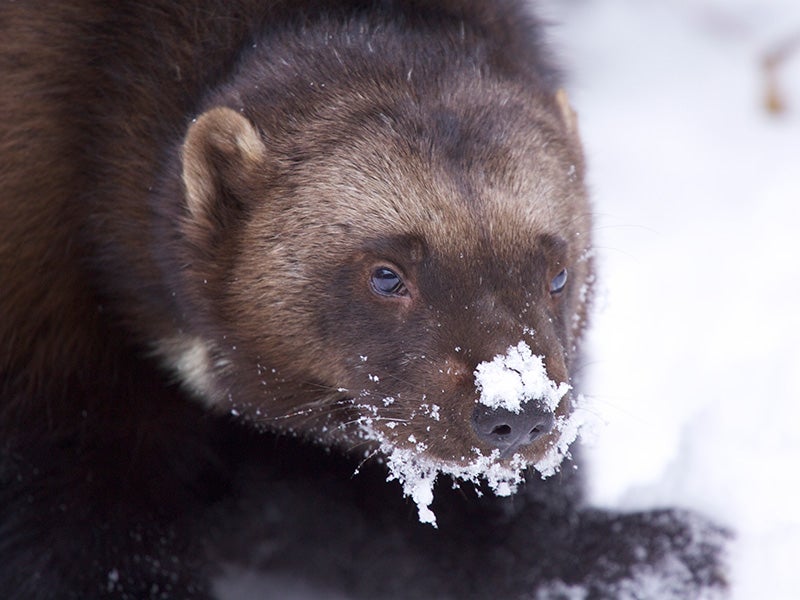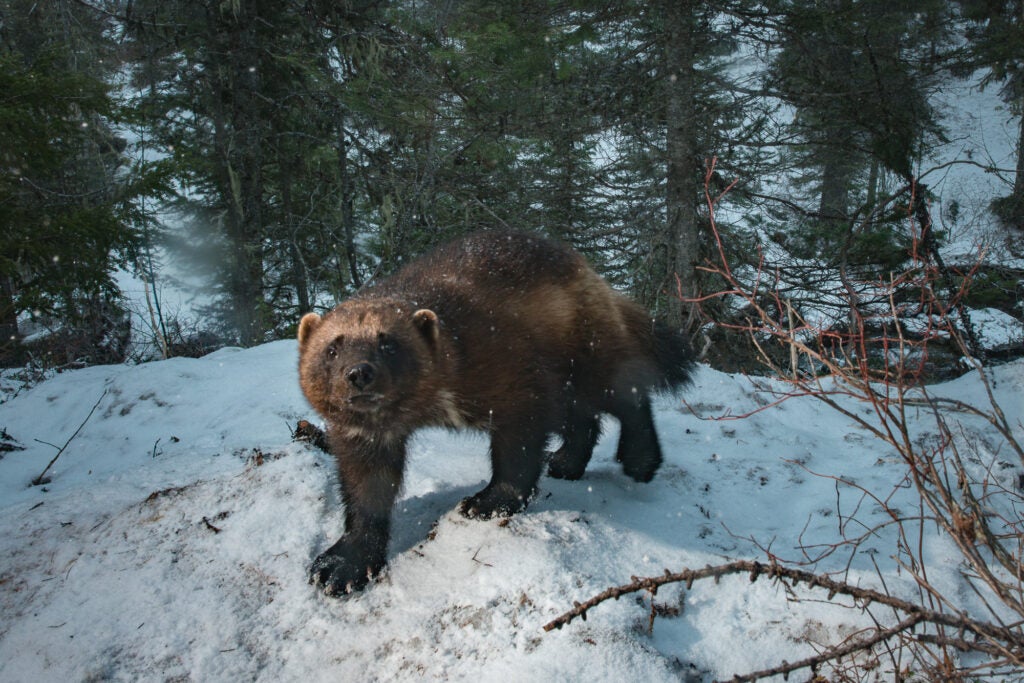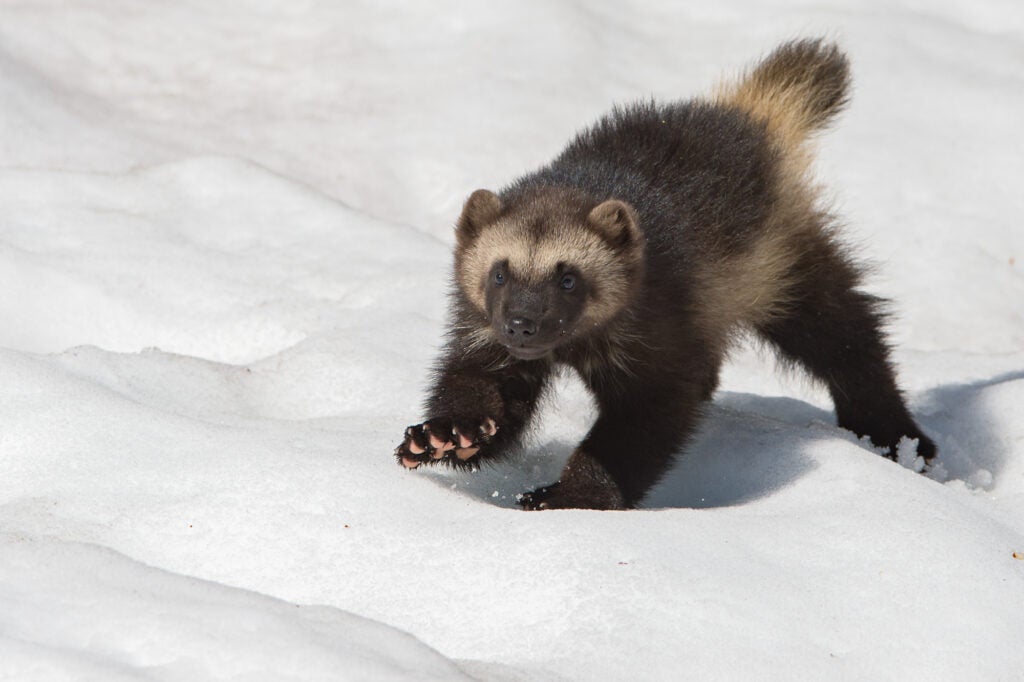Obtaining Legal Protections for Wolverines
Without the new conservation efforts that would be triggered by the Endangered Species Act listing, wolverines face localized extinction as a result of climate change, habitat fragmentation and low genetic diversity.
Clients
Regional Office / Program
Case Overview
The wolverine, the largest land-dwelling member of the weasel family, once roamed across the northern tier of the United States and as far south as New Mexico in the Rockies and Southern California in the Sierra Nevada range. After more than a century of trapping and habitat loss, wolverines in the lower-48 have been reduced to small, fragmented populations in Idaho, Montana, Washington, Wyoming and northeast Oregon.
With no more than 300 wolverines remaining in these regions, the species is at direct risk from climate change because wolverines depend on areas that maintain deep snow through late spring, when pregnant females dig their dens into the snowpack to birth and raise their young.
Snowpack is already in decline in the western mountains, a trend that is predicted to worsen. Wolverine populations also are threatened by trapping, human disturbance, extremely low population numbers resulting in low genetic diversity, and fragmentation of habitat.
Recognizing these threats and the need for new protection measures, Earthjustice — on behalf of conservation groups — petitioned to list the wolverine as a threatened species under the Endangered Species Act in 2000. For two decades, the Fish and Wildlife Service has time and again delayed and obstructed the proposed wolverine listing.
These tactics have required public advocates for the wolverine to repeatedly turn to the courts for enforcement of the Endangered Species Act.
Earthjustice and the groups we represent have won every case they have filed on behalf of the wolverine, either through judicial rulings in their favor or through favorable settlement agreements.
<!–
Once widespread across the northern states, wolverine populations today remain only in isolated patches of alpine habitat in Montana, Wyoming, Idaho, and Washington.
This largest terrestrial member of the weasel family is generally intolerant of human disturbance in its habitat. Its presence in an area signifies untrammeled, uncompromised wilderness. As a snow-dependent species, the wolverine is especially vulnerable to warming conditions brought on by climate change.
The best data available suggests there are fewer than 300 animals across the entire western U.S., with only 35 individuals—just a tenth of the population—successfully breeding.
In October 2006, a federal judge agreed with us that the FWS wrongly rejected scientific information regarding the wolverine that “shows a dramatic loss in range, the tangible decrease in population with the commensurate threat of genetic isolation of subpopulations, and the threat posed by human encroachment on wolverines.”
In July 2011, the Fish and Wildlife Service announced that it will determine whether wolverines deserve full protection of the Endangered Species Act by 2013.
In February 2013, the Service announced its proposal to list the wolverine in the lower-48 states as a threatened species under the federal Endangered Species Act. If finalized, the move will focus new resources on wolverine recovery and take steps to help the species survive the impacts of climate change. The proposal resulted from more than a decade of consistent pressure from several conservation groups, including three separate legal actions taken to secure an ESA listing.
–>

Case Updates
Case page created on December 13, 2020.


